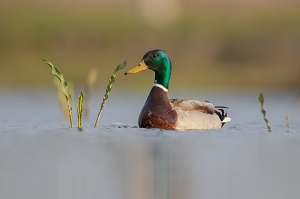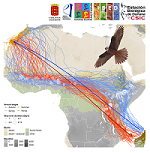
Welcome
Welcome to the official website of the Doñana Biological Station (EBD-CSIC)...

The Doñana Biological Station: EBD-CSIC
The Doñana Biological Station is a public Research Institute belonging to the Spanish Council for Scientific Research CSIC in the area of Natural Resources...

Mission
Our fundamental mission is to carry out multidisciplinary research of the highest standard directed to understanding the way in which biodiversity is generated, maintained and deteriorates, as well as the consequences of its loss...

Our methods
We apply many techniques within a multidisciplinary framework, from molecular genetics to remote sensing, and from modelling to physiological and isotopic analyses...

Monitoring the environment
Monitoring biodiversity at the Doñana Natural Space cover a wide range of communities, including both terrestrial and aquatic organisms...

Aims
Our aims include the study of the ecological and evolutionary processes by combining field work, mathematical and statistical models and physiological and genetic analysis...
 News
News
Content with tag long-distance migration .
 Ducks help plants to escape global warming
Ducks help plants to escape global warming
 Winds and barriers shape zigzagged trans-African migrations of Canarian Eleonora’s falcons
Winds and barriers shape zigzagged trans-African migrations of Canarian Eleonora’s falcons
The results show that falcons zigzag across Africa because they maximize wind support through oppossing wind fields, across open ocean and across the Sahara, and then compensate for those displacements through weak or favourable wind fields



